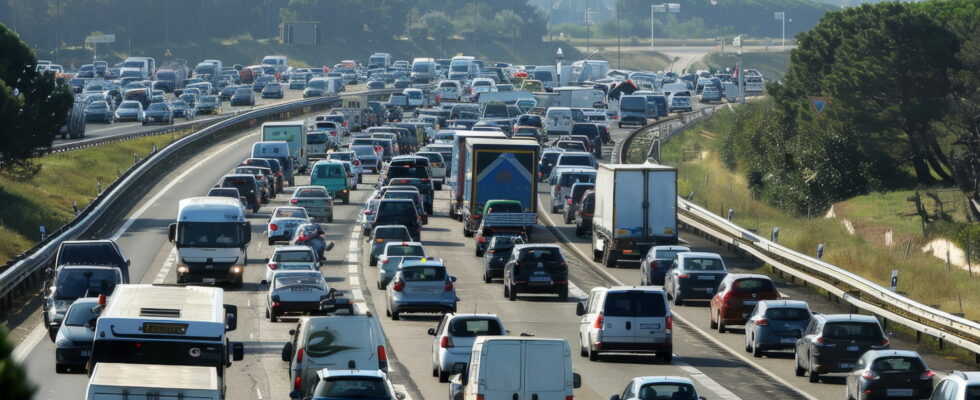This day is announced as the most difficult on the roads during the summer holidays.
The months of July and August often rhyme with holidays, sun and beaches. But also with traffic jams. For eight to nine weeks, tens of millions of French people cross paths on the roads to reach their summer destinations, many in France, whether at the seaside, in the mountains or inland. Saturdays, which very often coincide with the start of rentals for holidaymakers, are always the busiest days on the roads. It is not uncommon in summer to see more than 1,000 kilometres of traffic jams across the country on that day.
Summer 2024 will be no exception. And while the first major waves of departures took place during the first two weekends of July, following the start of the school holidays, it was a little later that the worst day of the summer was announced. The one where you will have to be patient in the car more than ever when journey times will be extended by three, four or even five hours. Traffic information specialist Bison Futé has already published the schedule of traffic difficulties for the coming weeks. And this year the busiest day should not be in August but in July.

It is indeed on Saturday, July 27 that the traffic forecasts in France are the most pessimistic. With a map entirely black in the direction of departures – the color meaning “extremely difficult traffic” – and red in the direction of returns with the exception of the Île-de-France also in black. If you are planning to go on vacation on the occasion of this first big weekend of crisscrossing, which will also be the start of the Paris Olympic Games, prepare yourself for a particularly trying day, especially if the heat is on. There will be no exception, and all the major roads in the country, starting with the A6, the A7, the A9 and the A10, risk being saturated at one time or another during the day.
It may not be too late to adapt your schedule, for example by bringing forward your big departure by one day, even if it means planning a stopover halfway. This allows you to take advantage of a much less congested road on Friday and to leave on Saturday morning from a place not yet stormed by motorists, provided you spend the night outside a big city.
